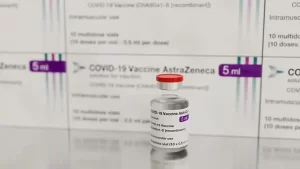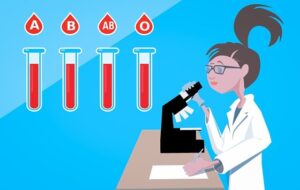Nature: Chromosome fragmentation promotes the formation of ecDNA
- Popular Indian Spices Banned in Hong Kong Over Carcinogen Concerns
- AstraZeneca Admits for the First Time that its COVID Vaccine Has Blood Clot Side Effects
- Gut Bacteria Enzymes Offer Hope for ABO Universal Blood Transfusions
- Well-Known Japanese Medicine Exposed for 30 Years of Data Falsification
- Oregon Reverses Course: From Decriminalization to Recriminalization of Drug Possession
- Why Lecanemab’s Adoption Faces an Uphill Battle in US?
Nature: Chromosome fragmentation promotes the formation of ecDNA
Nature: Chromosome fragmentation promotes the formation of ecDNA, which in turn endows cancer cells with drug resistance. Catastrophic changes in chromosomes-chromosome fragmentation (chromothripsis)
Biological DNA is always mutated spontaneously, which is also the driving force of biological evolution, and human beings are of course no exception. In most cases, this gene mutation is harmless, but in a few cases it can affect the normal function of cells and even cause cancer.
Generally speaking, the genetic mutations in the human genome involve only a few nucleotides, but there are also catastrophic changes involving the entire chromosome——Chromosome fragmentation
(Chromothripsis).
DNA double-strand breaks caused by various unexpected reasons, which in turn cause chromosomes to split into many fragments, and then under the DNA self-repair mechanism, these fragments are randomly reconnected together, causing one or more chromosomes to rearrange and form a mosaic Type chromosome. Previous studies have shown that chromosome fragmentation is related to a variety of cancers and congenital diseases.
Recently, a research team from the University of California, San Diego and the University of Cambridge collaborated and published the title in the journal Nature: Chromothripsis drives the evolution of gene amplification in cancer Research papers.
The study found that chromosome fragmentation (chromothripsis) can accelerate the rearrangement and amplification of genomic DNA into extrachromosomal DNA (ecDNA), allowing cells to quickly acquire tolerance to changing growth conditions, thereby conferring resistance to cancer treatments .
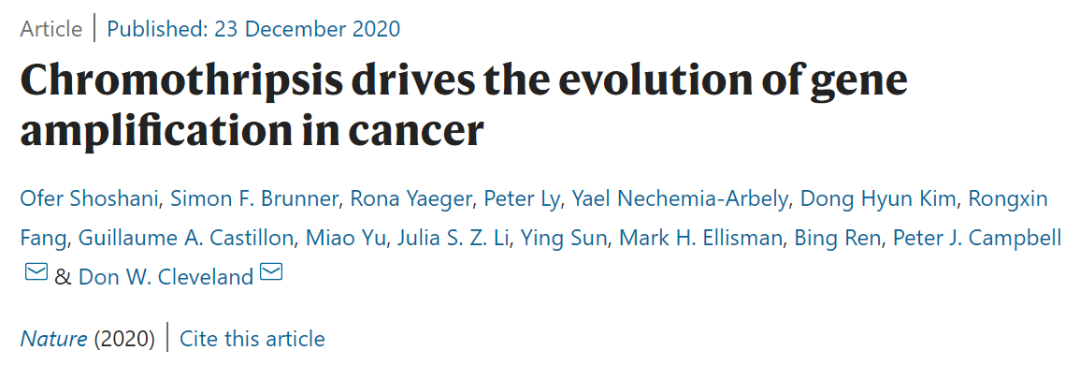
In the process of chromosome fragmentation, a chromosome in the cell is fragmented into several or even hundreds of fragments, and then rearranged and assembled. In the process of rearrangement and assembly, some fragments are lost, and some fragments remain as Extrachromosomal DNA (EcDNA). Some of these ecDNA elements form the so-called “Double microbody”(Double minutes).
Double microbody
It is a centromere circular DNA molecule that appears in pairs outside the chromosomes, ranging in size from several hundred kb to several hundred Mb. This extrachromosomal hereditary unit is a small Mb-level ring structure, acentromere, no telomere, and can replicate autonomously. It often carries oncogene and drug-resistant gene amplification, and is related to genome instability, tumor malignancy and drug resistance Etc. are closely related.
The team’s previous research found that in many types of cancer, as many as half of cancer cells contain extrachromosomal DNA (ecDNA) carrying oncogenes.
In this study, the research team used the method of directly observing the structure of the chromosome to determine the steps of gene amplification and the potential mechanism of resistance to the cancer drug methotrexate.
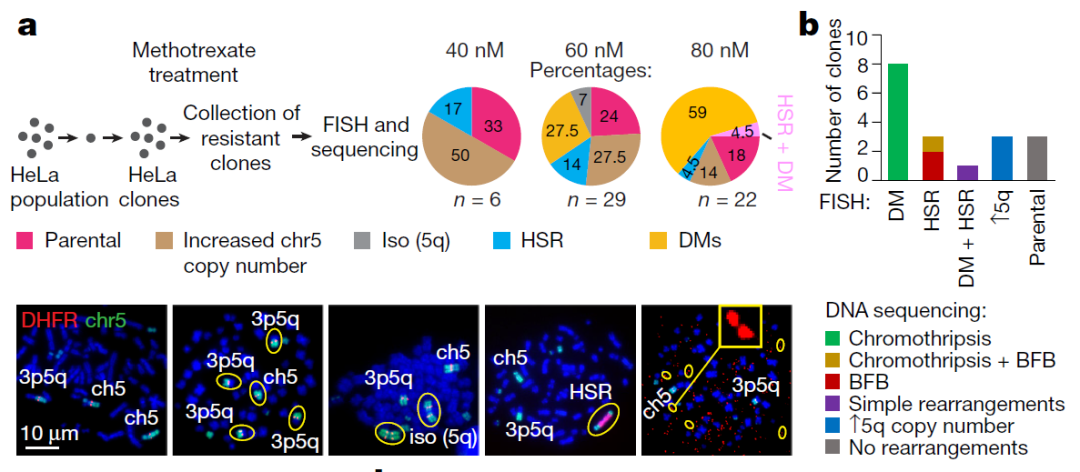
The research team performed whole-genome sequencing of drug-resistant cells, revealing that chromosomal fragmentation promotes the formation of extrachromosomal DNA (ecDNA), thereby conferring resistance to cancer treatment.
The results of this study indicate that chromothripsis is the main driving factor that accelerates the rearrangement and amplification of genomic DNA into extrachromosomal DNA (ecDNA), allowing cells to quickly acquire tolerance to changing growth conditions.
Chromosome fragmentation (chromothripsis) can amplify intrachromosomes(Internal)Conversion to extrachromosomal amplification(External). Then, the amplified extrachromosomal DNA (ecDNA) responds to DNA damage caused by cancer treatments such as chemotherapy or radiotherapy, and reintegrates into a new position on the chromosome.
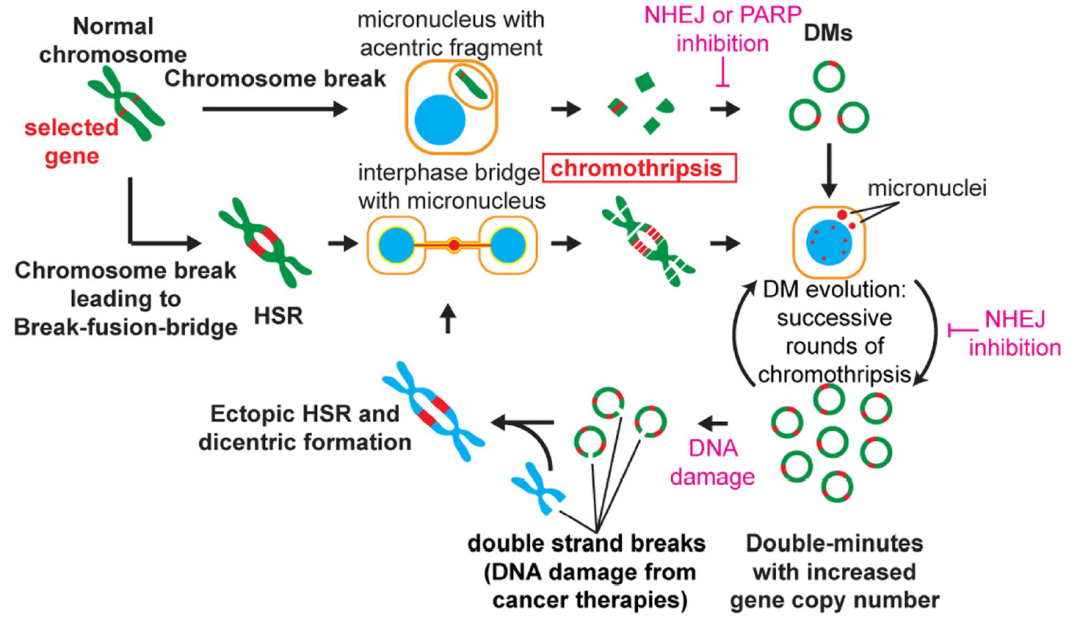
This study highlights the important role of chromothripsis in the DNA amplification of cancer cells and also explains how cancer cells become more aggressive and resistant.
The study confirmed that chromothripsis is the driving force of cancer cell drug resistance and DNA repair pathway, which also reminds us that reasonable design of combination drugs for this pathway can prevent cancer patients from developing drug resistance and improve The effect of treatment for cancer patients.
(source:internet, reference only)
Disclaimer of medicaltrend.org

